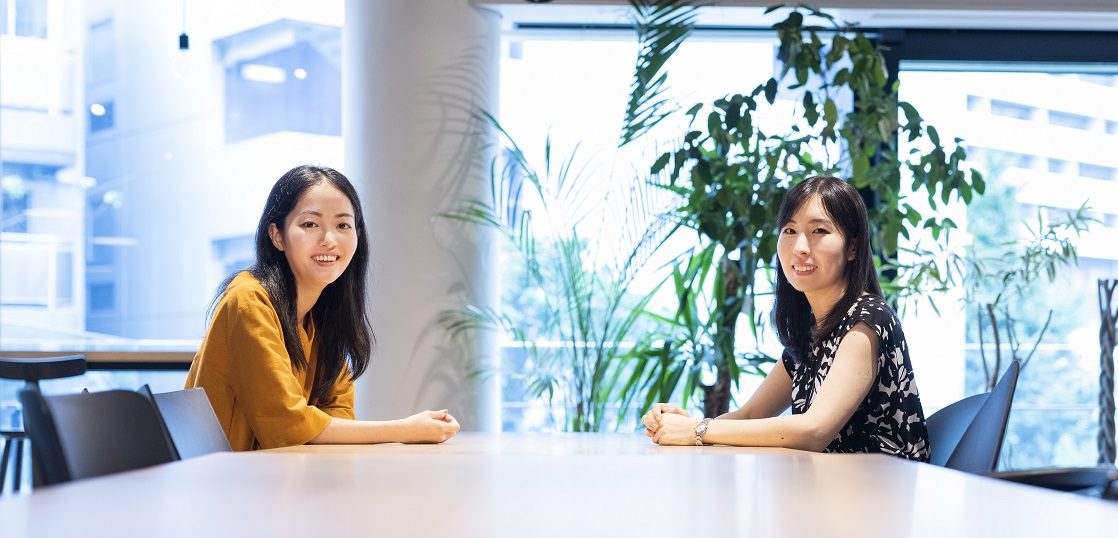Young female business owners who started a business when they were students. We are working on businesses that will lead to future society. This time, we will deliver a dialogue between two people who have different business genres but have something in common.
Gomi Hayakawa is known for problem-solving apparel brands and is still active in various fields. Sachiko Takahashi, Executive Officer of Euglena Co., Ltd., is the representative of GeneQuest Co., Ltd., which handles gene analysis services.
From what perspective are the two people, who are both taking on new challenges with an eye on the future, looking at the present society?
I want to challenge the common sense of the industry from a new perspective
Shoko Takahashi (hereinafter Takahashi): I always read Hayakawa-san's remarks on SNS, and I thought he was an interesting person. Immediately, what are you putting the most effort into right now?
Hayakawa Gomi (henceforth Hayakawa): The business focus is on the development of sanitary napkins. Originally I've been in the apparel business for a full five years, but now I'm thinking of shrinking and turning to the sanitary napkin business.
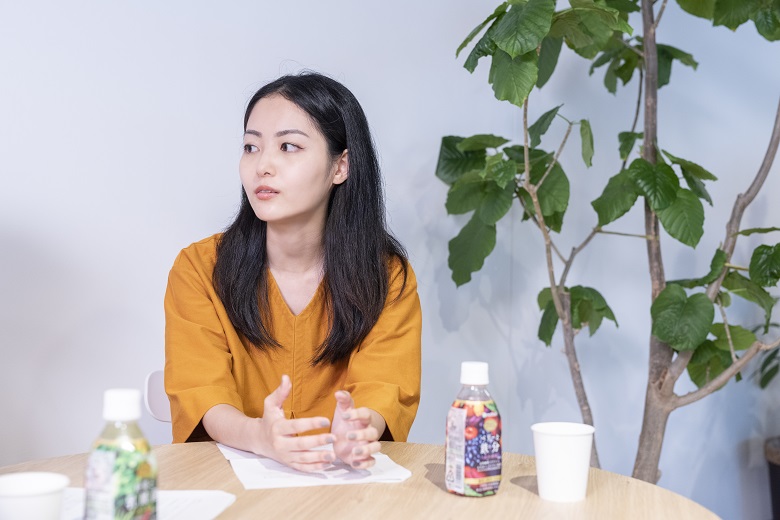
Hayakawa Gomi Hayakawa (President and CEO of Utsuwa Co., Ltd.)
Started making accessories when he was in the first year of high school, designing and selling print tights while taking an examination. Immediately after entering university, he launched the one-piece brand "GOMI HAYAKAWA", the lingerie brand "feast" which is his sister brand in August 2014, and the one-piece brand "Double Chaka" in October 2017, and continues to sell mainly e-commerce. After multiple pop-up shops, in 2018, we opened a permanent directly managed store "LAVISHOP" in Laforet Harajuku. We are good at problem-solving context design.
Takahashi: You are working energetically to dispel negative images such as "things to hide" and "packages are dull and natural" for sanitary napkins. That kind of feeling is amazing from my point of view.
Even if it's a little inconvenient, most people will think, "Well, that's what it is." Where does the feeling of not overlooking it come from? I was wondering.
Hayakawa: My specialty is retail, but when I look at the world from that perspective, I sometimes see things like "bias" and "thoughts" in various products. For example, the percentage of online sales of sanitary napkins is less than 1% in this era.
Takahashi:Really! Certainly there is a bias in the sales channel.
Hayakawa: Looking at where they are purchased, about 65% are drug stores. In such a situation, I think that the drugstore's speculation directly leads to consumer purchasing activities. That's why I want to challenge the current equilibrium from a new perspective by selling online.
If online is a strong apparel genre, consumers can buy what they like and how they like it.
Takahashi: It may work well as a system, but as a consumer, there are few variations in choices. But I think that the attitude of trying to change it by oneself is different from other people.
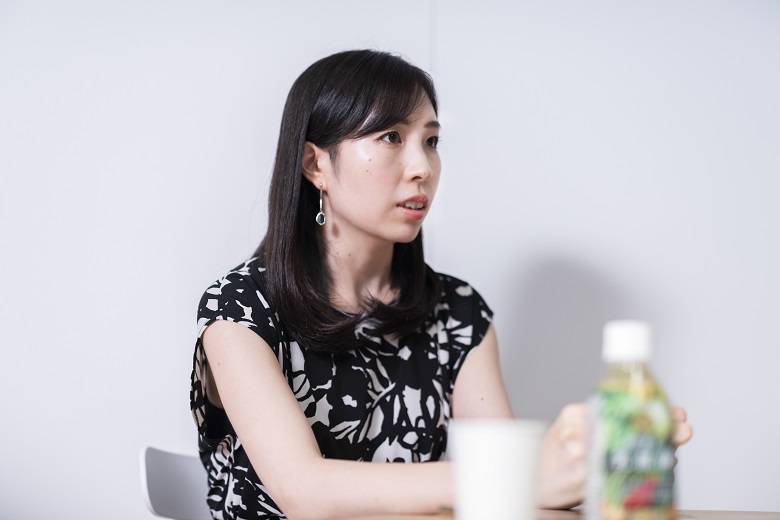
Shoko Takahashi (Euglena Co., Ltd. Executive Officer in charge of Bioinformatics Business / GeneQuest Co., Ltd. Representative Director)
Graduated from the Faculty of Agriculture, Kyoto University. In June 2013, he started GeneQuest Co., Ltd. while enrolled in the doctoral program at the Graduate School of Agriculture and Life Sciences, the University of Tokyo. Completed the doctoral course in March 2015 and obtained a doctorate. We provide a genome analysis service that conveys genetic information on disease risk and constitution to individuals. April 2018 Appointed Executive Officer in charge of Bioinformatics Business, Euglena Co., Ltd.
Hayakawa: To be honest, there is a nasty desire to shake the industry, which has become strangely calm in capitalism.
What I'm doing may seem superficial and design-like, but the root comes from the idea that "Isn't it possible to re-examine the constitution and business model of the industry?" Right.
Takahashi: That's what Hayakawa has in common with all of his activities.
Hayakawa: From an industry perspective, I think it feels like "something bad guys have come to vandalize" (laughs). But that's not the case, and I have a lot of respect for existing players, and I often work with them.
Always move while assuming "BAD route" and "GOOD route"
Takahashi: Until a while ago, I had the impression that "people who can give the correct answer to a question" are useful in society. However, recently, I think that the emphasis has been placed on "people who can ask questions." In that sense, Mr. Hayakawa is very good at asking questions.
Hayakawa: It may be "depleted" at a naive level compared to humans. After all, if you are not exhausted by something in your daily life, you will not have the desire to move independently.
Therefore, even if you do not have any tasks for yourself, you may be in an environment where you can easily do various tasks for yourself. Actually, the sanitary napkin business wasn't "your own" at first.
Takahashi:Really? It's surprising.
Hayakawa: I myself don't have that heavy menstruation, and I didn't really worry about the quality of sanitary napkins. However, when I suddenly turned my attention to the current situation of sanitary napkins, I became aware of the issues.
When I became the boss of a woman who suffered from menstruation, I was worried that I would say something like "Do you rest on your period?" Because you can't understand the pain. I thought I should take some measures to prevent this from happening.
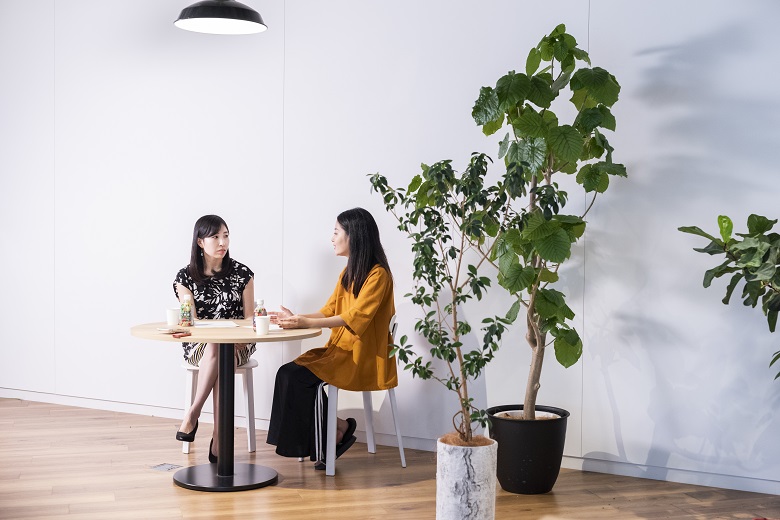
Takahashi:So that's it. Moving on to Euglena, we are giving out cookies containing Euglena to children with nutritional problems in Bangladesh in accordance with our management philosophy of "healthy people and the earth." is. However, the reality is that there are still few people who can personalize and think about these issues.
Isn't it "a person who can envision the future of those who are not" who can see issues as issues? Only when compared with that state can you realize that it is an issue. That's why Mr. Hayakawa thought that he had a lot of imagination.
Hayakawa: There is a section that always assumes "BAD route" and "GOOD route". Maybe it's the influence of the game (laughs).
For example, when I compare the case where I do the sanitary napkin business and the case where I do not do it now, there is a sense of crisis that if I do not do it, I will go to the BAD route. That's why I'm desperately trying to do it.
Takahashi: As I recalled from this story, there was news recently that I felt "this is the" BAD route "" in the area of genes. In 2018, it was announced that a "genome editing baby" was created in China *.
Genome editing is a genre that should develop in the fields of intractable disease treatment and disease research in the future, but that research has the potential to regulate applied research of genome editing to humans around the world. ..
* In November 2018, a Chinese researcher announced that he had born the world's first genome-edited baby. Genome editing of fertilized human eggs has been banned in many countries and has been criticized by scientists around the world, including its authenticity.
Hayakawa: Exactly the BAD route. It's like a movie.
Takahashi: I thought you shouldn't go on this path.
The more input you make, the more you realize that you are not special
Hayakawa: After all, when you run a business, various things happen. At that time, I think, "I have to do it right away before it's too late." I felt something in common with Mr. Takahashi.
Takahashi: When Mr. Hayakawa bumps into something painful ... Oh, do you have one? Collide.
Hayakawa: There is so much.
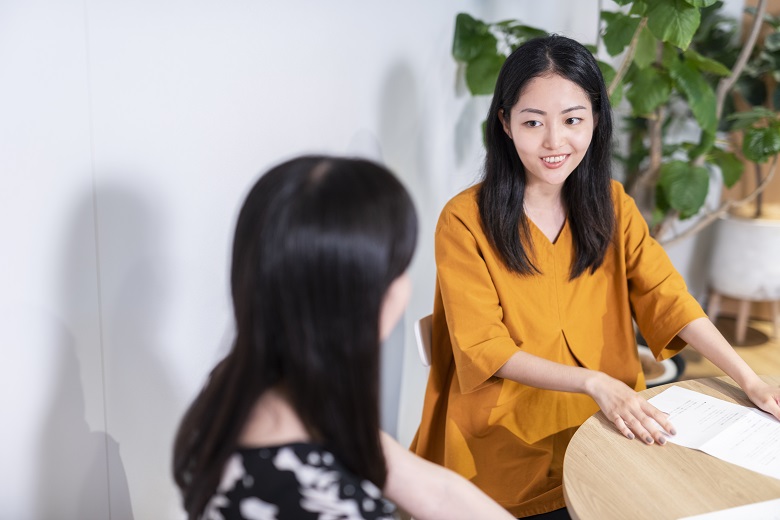
Takahashi: Good (laughs). How do you overcome such a situation?
Hayakawa: You may forget it when you go to bed (laughs). I've been in business since I was in the first year of college, so I've become more tolerant.
In the past, when something went wrong, I tended to fall into the thought that "this happened because there were bad people", but now the fact that "no one is bad, but bad things can happen". Being able to accept. From that point on, my heart became calm.
Takahashi: But isn't the problem difficult if bad things happen when there are no bad people?
Hayakawa: It's difficult, but conversely, if people aren't the factor, you can rethink the mechanism, and if it's a matter of timing or luck, you have to give up.
Takahashi: You distinguish between what can be changed and what cannot be changed, and focus on what can be changed.
Hayakawa: Mr. Takahashi, what would you do if something painful happened?
Takahashi: I read the treatise. Then somehow courage came up. I don't think it's the case when geniuses around the world are trying new things and stumbling on such a small thing.
Hayakawa: You may understand. As I started reading a lot, I realized that I wasn't that special. Everyone is worried about the same thing and is hitting a wall. "I don't have to be that serious!"
On the other hand, if you run into a problem that no one has ever experienced in the history of the world, I'm happy that it's a big discovery (laughs).
~ Continue to the second part ~
* Honorific titles omitted in the text
Composition: Tomoko Hatano / Photo: Yuji Tanno / Editing: Yu Oshima

